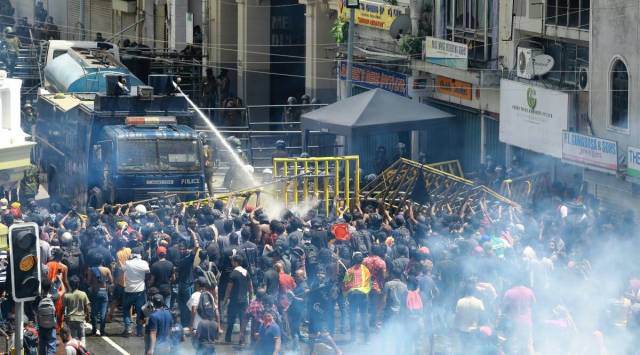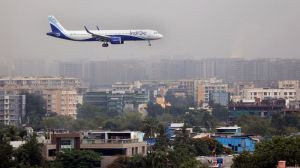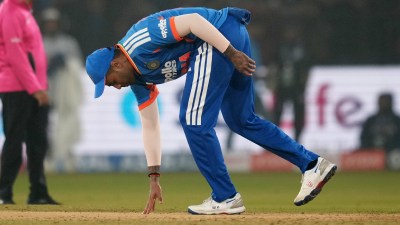Indian diplomats in Colombo were keeping a “close watch” on the ground situation – the Indian High Commission is located barely a few kilometres from the President’s residence.

Sources in the Indian establishment said the resignation of Mahinda Rajapaksa as Prime Minister in May was the beginning of the end of the Rajapaksas — and the Saturday storming of the Presidential home, with Gotabaya’s whereabouts unknown, was “a natural outcome”.
With Sri Lanka Prime Minister Ranil Wickremesinghe also offering to resign, the government in Colombo is in a state of flux, and turmoil.
In New Delhi, sources watching the events unfold said the financial crisis has crippled the island nation, and nobody in the political class wants to take the lead. “They all know that it is an insurmountable crisis in the short-term, and nobody wants to clear the financial mess created by the Rajapaksas,” a source told The Indian Express.
For India, anarchy on the streets of Colombo and a potential rudderless political leadership do not bode well.
As Sri Lanka’s neighbour and first responder, India’s recent economic aid stands at USD 3.5 billion.
Story continues below this ad
Last month, New Delhi sent an Indian delegation — led by Foreign Secretary Vinay Kwatra, it comprised top officials of the Finance Ministry including the Chief Economic Advisor — to meet the Sri Lankan leadership including Gotabaya Rajapaksa and Wickremesinghe. The team conveyed that India stands ready to help Sri Lanka in quick economic recovery by promoting investments, connectivity and strengthening economic linkages.
New Delhi also supported Sri Lanka during the meetings at the IMF in March this year and on subsequent occasions in different fora including regional and plurilateral organisations.
Sources said Delhi has underscored that the economic, financial and humanitarian assistance of over US$ 3.5 billion to the people of Sri Lanka was guided by its ‘Neighbourhood First’ policy and ‘Security and Growth for All in the Region (SAGAR)’ vision.
While India has been engaging with the political leadership, it has also kept reiterating that it is working for the “people of Sri Lanka” — a careful messaging to negate any apprehension that it is backing the Rajapaksa family or any particular political leader.
Story continues below this ad
Sources said that in a “fluid situation” like this, the Indian strategic establishment does not want to take sides, but wants “rational actors” to take control of the situation so that there is “stability in the country and the region”.
From Delhi’s strategic perspective, sources said a “stable and peaceful” Sri Lanka is in India’s interest “just as it is for Sri Lanka’s interests” as well.
“Political stability is the most important element,” a source said, adding that Delhi is in close contact with all “relevant stakeholders”, both inside and outside the government.
What is important right now for Delhi is to see who are the main actors who emerge from the crisis — in the political, military and civil society fields.
Story continues below this ad
Sources in the Indian establishment said that one of the lessons of the Arab Spring is that the “power vacuum” gives space to “radical and extremist actors”. And that is something Delhi is extremely wary of, at the moment.
With China’s strategic footprint growing in the region and the 2019 Easter bombings pointing to Islamic extremism in the island nation, Delhi wants stability and peace in the country where its security and strategic interests are not impacted.
India, sources said, will not “give a running ball-by-ball commentary” on the internal affairs of Lanka — there were no tweets by the Indian High Commission on Saturday’s events, but diplomats on the ground have been engaging with key players in the Sri Lankan establishment to manage the crisis-hit economy and efforts undertaken towards achieving economic recovery.









